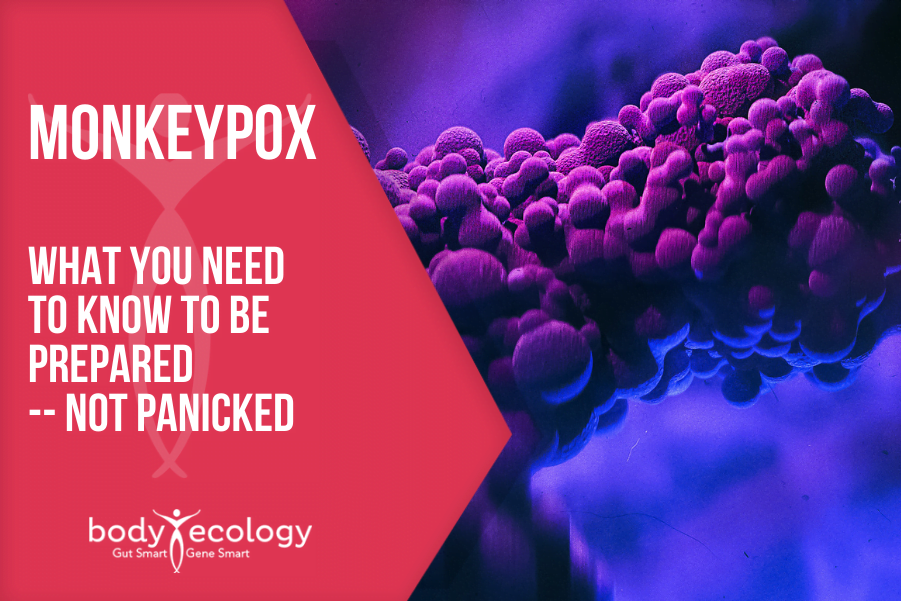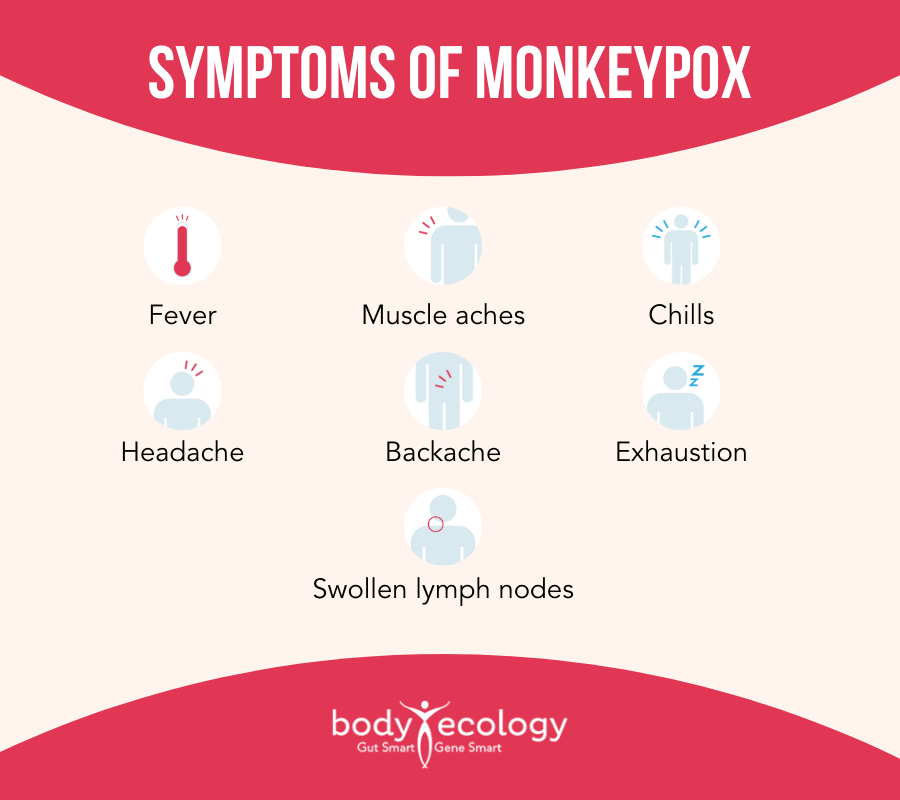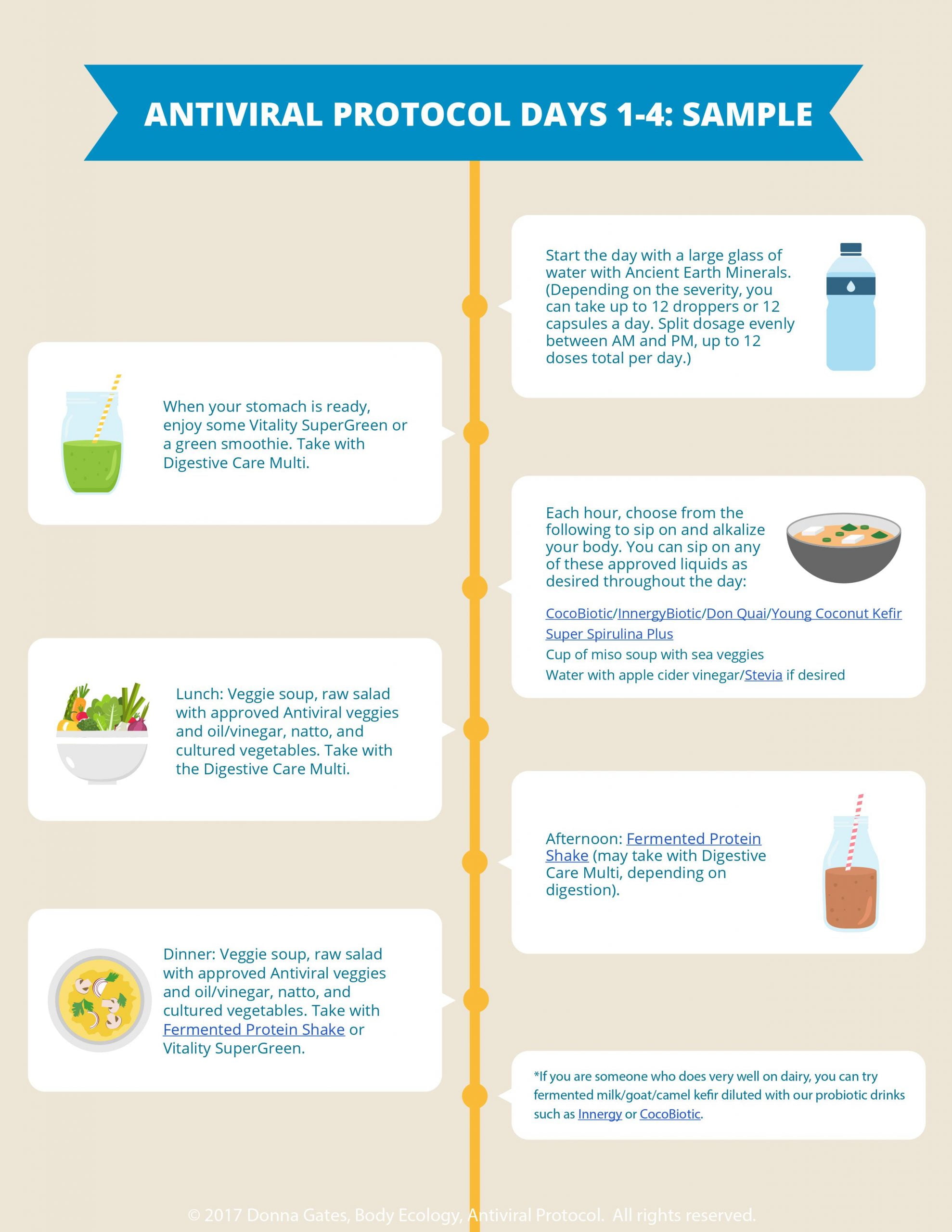Monkeypox: Be Prepared — Not Panicked

You’ve likely heard of the next scary virus to be worried about: monkeypox. Here’s what you need to know about this particular virus so that you can be prepared — not panicked.
Plus, what you can start doing right now to strengthen your immune system against any virus—this one or any in our future.
Origins Of Monkeypox
Monkeypox was first identified in 1958 among a colony of research monkeys in Africa. The first case in humans was reported in 1970 in the Democratic Republic of the Congo (DRC) while efforts to eliminate smallpox were intensified.
According to the CDC, monkeypox virus belongs to the Orthopoxvirus genus in the family Poxviridae. The Orthopoxvirus genus also includes variola virus (which causes smallpox), vaccinia virus (used in the smallpox vaccine), and cowpox virus.¹
Since then, the virus has been reported in humans in several African countries, and cases outside of Africa have been linked to international travel.
The natural reservoir of the virus is still unknown, but some African monkeys and rodents are thought to carry it and infect humans.
How Monkeypox Spreads Among People
Unlike SARS-CoV-2 (COVID-19), monkeypox is not easily transmitted among humans. It is not a respiratory virus, and is believed to be spread through skin-to-skin contact with someone with an active rash.
While monkeypox is related to smallpox, it is a much milder skin infection. Most people fully recover in 2-4 weeks, and the fatality rate is around 1%.²
Prevalence Of Monkeypox
As of May 26th, 257 laboratory confirmed cases and 120 suspected cases of monkeypox have been reported to WHO from 23 Member States that are not endemic for monkeypox virus.⁴ In the U.S., nine states have a total of 18 confirmed cases to date.³ No associated deaths have been reported to date. Given the global population of 8 billion, public health officials maintain that the risk to the general public is very low.
Symptoms Of Monkeypox
The primary difference between monkeypox and smallpox is that monkeypox causes swelling of the lymph nodes — smallpox does not. The incubation period for monkeypox is usually 7-14 days, but can range from 5-21 days.
Symptoms may include:
- Fever
- Headache
- Muscle aches
- Backache
- Swollen lymph nodes
- Chills
- Exhaustion
A rash typically appears within 1-3 days after the fever begins. The rash starts on the face then spreads to other parts of the body, and includes lesions that go through the following stages before falling off and healing:
- Macules
- Papules
- Vesicles
- Pustules
- Scabs

Monkeypox Vaccine
Currently, there is not a monkeypox vaccine available to the general population.
According to the CDC, JYNNEOS (also known as Imvamune or Imvanex) is an attenuated live virus vaccine which has been approved by the U.S. Food and Drug Administration for the prevention of monkeypox. The Advisory Committee on Immunization Practices (ACIP) is currently evaluating JYNNEOS for the protection of people at risk of occupational exposure to orthopoxviruses such as smallpox and monkeypox in a pre-event setting.⁵ But do you need another vaccine?
Preventing Monkeypox
Like all contagious viruses, practicing good hygiene, using personal protective equipment when caring for infected individuals, and isolating those infected from others at risk are all preventative measures you can take to stay healthy.
Additionally, the CDC recommends avoiding contact with animals that could harbor the virus, and to avoid materials, such as bedding and clothes, that have been in contact with a sick animal or person.
Preparing Your Immune System To Fight Monkeypox
The most important thing you can do to protect yourself from monkeypox is to build a strong immune system — which starts in the gut.
The Body Ecology system of health and healing is very protective against viruses. It helps to restore and maintain the “inner ecology” your body needs to function properly. For a hardy immune system, we must be eating an alkalizing, plant-rich, sugar-free, gluten-free diet with fermented foods, probiotic liquids (like our new MojitoBiotic) and probiotic supplements. These add diversity and create an inner ecosystem that is the foundation for a robust, stable immune system. Remember, over 70% of our immune system is in our gut.
Now, if you find yourself faced with the actual monkeypox virus, or any other virus, we have a diet that we call our Antiviral Diet. Detailed instructions for the Antiviral Diet can be found here.
The Antiviral Diet recommends the use of three products:
Ancient Earth Minerals – Nourishes adrenals and thyroid, alkalizes the body, supports and strengthens the immune system, amplifies body’s detoxing ability.
Digestive Care Multi – Supports digestion, helps eliminate toxins.
Vitality Super Green – Alkalizes the body, boosts energy and immunity.

All Body Ecology products are all specifically designed to help you cultivate, nourish, cleanse and repair an abundant inner ecosystem. Our Immune Power Shake contains eight medicinal mushrooms that contain powerful beta glucans and nutrients that balance and enhance the immune system. It also contains a symbiotic blend of both probiotics and prebiotics, L-glutamine to support the immune response, plus Aquamin®, a bioavailable mineral complex that reduces inflammation in the gut.
Protecting Your Mental Health During Virus Scares
Reducing chronic inflammation is key to healing and strengthening the immune system. Additionally, we know that the brain-gut connection via the vagus nerve holds a lot of power over mood, and new research shows that inflammation in the gut can change the way we think and affect our decision-making.⁶ Multiple studies have also demonstrated that people with depression have elevated levels of inflammation in their bodies. When injected with chemicals to induce inflammation, patients had worsening symptoms of depression a few hours later. This could indicate that inflammation may actually cause symptoms of depression.⁷
With so many people living with chronic inflammation and then being inundated by doom and gloom in the news, it’s no surprise that anxiety and depression is on the rise around the world. So, an anti-inflammatory diet, like we recommend at Body Ecology with a focus on your gut and reducing inflammation may actually help to fight monkeypox in two ways: by strengthening your immune system, and improving the brain-gut connection to help you approach this new virus threat with calm, rational thinking.
Whether monkeypox is going to be a widespread threat or just another thing to keep news outlets busy remains to be seen. The best thing is to arm yourself with knowledge and focus on strengthening your immune system by giving your gut more attention. And read up on our unique and effective Antiviral Diet.
References
1 https://www.cdc.gov/poxvirus/monkeypox/about.html
2 https://www.cdc.gov/poxvirus/monkeypox/symptoms.html
3 https://www.cdc.gov/poxvirus/monkeypox/response/2022/index.html
4 https://www.who.int/emergencies/disease-outbreak-news/item/2022-DON388
5 https://www.cdc.gov/poxvirus/monkeypox/prevention.html
6 https://www.psychologytoday.com/us/blog/the-modern-brain/202002/how-inflammation-changes-our-thinking?_kx=LOFq6cesokyUL1nZyZEW7I_p9y6L9FbmZengKoythV4%3D.WhntWb
7 https://www.sciencedirect.com/science/article/abs/pii/S0006322309012293








